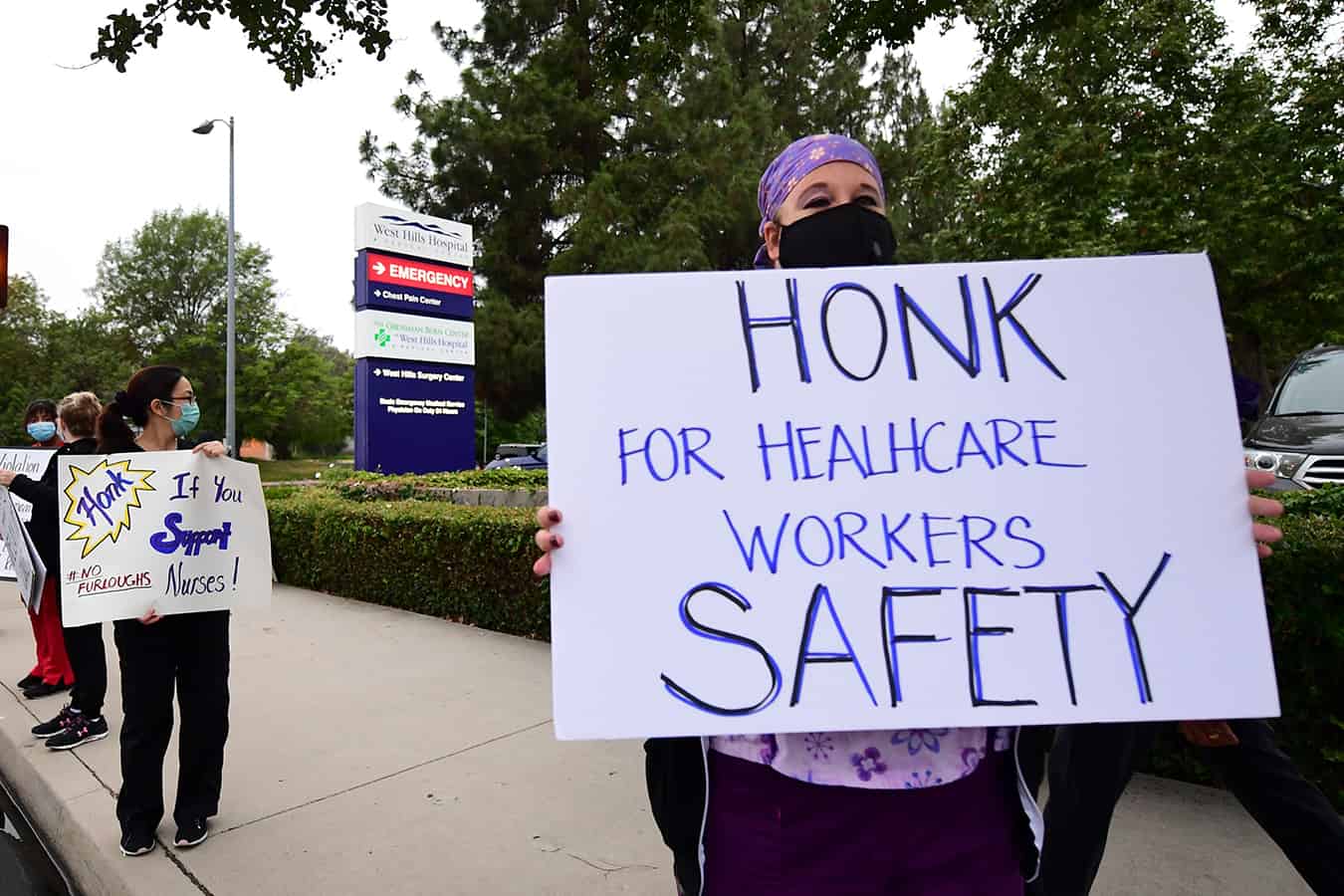
Zachary Boullt is a student at Harvard Law School.
The only nurses union in North Dakota has reached tentative agreement on their first contract. The nurses, represented by Minnesota Nurses Association, have been bargaining with Bismarck’s CHI St. Alexius Health over the last year. The contract includes provisions for six leave, right of refusal for unsafe assignments, a new wage-scale, and fairer emergency department staffing. Representatives of the union have praised strong language within the contract and its historic role in pushing for labor rights in a state with few unions. Members are expected to vote on the contract sometime next week.
Amazon has demonstrated active hostility toward labor organizing efforts in its job postings for the Intelligence Analyst and Senior Intelligence Analyst positions. Parts of the job requirements for the positions require analysts to engage with “labor organizing threats against the company” and to provide information for potential use in “restraining orders against activist groups.” The job postings have since been taken down after being shared and criticized on Twitter.
United Farm Workers has threatened to boycott Foster Farms in Merced County after a coronavirus outbreak has killed at least 8 workers. The chicken processing plant is shutting down for six days after multiple outbreaks and violations of public health orders. In the interim, UFW has made a list of demands, including shutting down their Livingston facility, testing all workers with periodic pubic results, paid leave while the plant is closed, quarantine pay to those sick, hazard pay, and free masks and face shields. Foster Farms would have to comply with the demands to avoid a boycott. At least 392 employees at the plant have tested positive for the virus.
The California legislature has passed the Save Local Journalism Act, AB 323, which gives newspaper companies an extra year to comply with the state’s new employee classification requirements under AB 5. Advocates of the bill pointed to low funds and advertising revenues for newspaper companies amidst the pandemic. Advocates also pointed to smaller magazines run by communities of color as being particularly vulnerable to folding under the new requirements. The bill received passionate opposition from AB5 author Assemblywomen Lorena Gonzalez, who claimed that newspaper carriers, unrepresented by lobbies or unions, were specifically meant to be protected by classification requirements, as carriers often make only $3 an hour. AB 323 passed the Assembly 60-2, and Governor Newsom has until September 30 to sign or veto the bill.
A wave of mass public sector layoffs in New York City have been delayed after municipal labor union pressure. 22,000 city workers were to be laid off on October 1. Municipal unions are lobbying for the state legislature to increase the city’s long-term borrowing capacity and are pushing to delay layoffs until that issue is resolved. Mayor Bill de Blasio supports the long-term borrowing solution to stave off layoffs.
New York writer Anthony DiMauro has penned an op-ed in Business Insider arguing that workers need to organize and unionize in order to combat racism in the workplace. DiMauro points to studies showing that union membership has reduced racial resentment and the racial wealth gap among members, as well as unions’ connections to the Civil Rights movement. He also criticizes current corporate practices of symbolic gestures indicating a commitment to racial justice as ineffective at creating substantial change or shaping attitudes. He argues that unionization would be a better means of promoting racial justice in workplace culture instead.






Daily News & Commentary
Start your day with our roundup of the latest labor developments. See all
February 2
Amazon announces layoffs; Trump picks BLS commissioner; DOL authorizes supplemental H-2B visas.
February 1
The moratorium blocking the Trump Administration from implementing Reductions in Force (RIFs) against federal workers expires, and workers throughout the country protest to defund ICE.
January 30
Multiple unions endorse a national general strike, and tech companies spend millions on ad campaigns for data centers.
January 29
Texas pauses H-1B hiring; NLRB General Counsel announces new procedures and priorities; Fourth Circuit rejects a teacher's challenge to pronoun policies.
January 28
Over 15,000 New York City nurses continue to strike with support from Mayor Mamdani; a judge grants a preliminary injunction that prevents DHS from ending family reunification parole programs for thousands of family members of U.S. citizens and green-card holders; and decisions in SDNY address whether employees may receive accommodations for telework due to potential exposure to COVID-19 when essential functions cannot be completed at home.
January 27
NYC's new delivery-app tipping law takes effect; 31,000 Kaiser Permanente nurses and healthcare workers go on strike; the NJ Appellate Division revives Atlantic City casino workers’ lawsuit challenging the state’s casino smoking exemption.